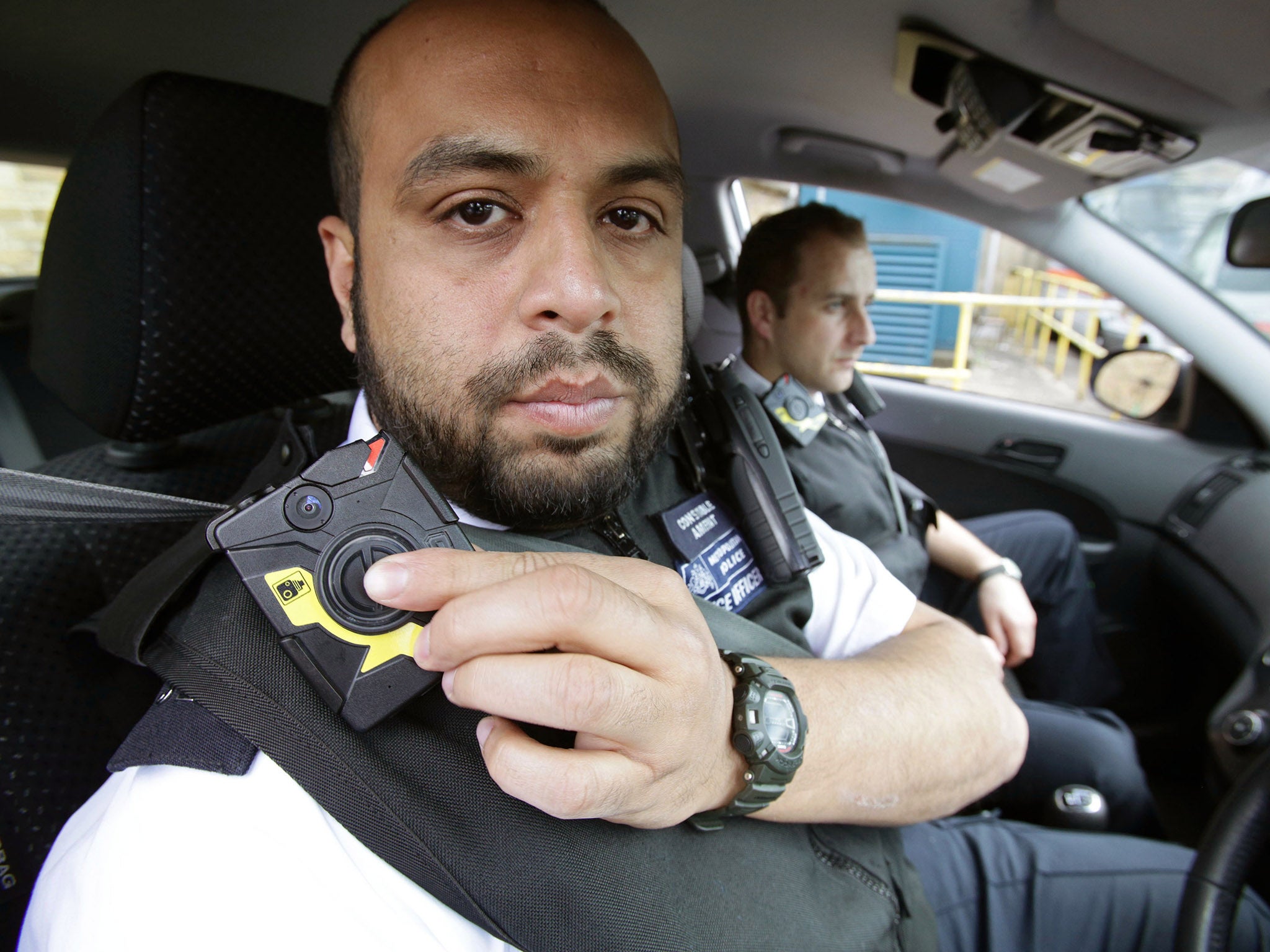Number of arrests made by police in England and Wales halved in last decade, figures show
Data from 42 forces show officers arrested 698,737 people in the year to March

Your support helps us to tell the story
From reproductive rights to climate change to Big Tech, The Independent is on the ground when the story is developing. Whether it's investigating the financials of Elon Musk's pro-Trump PAC or producing our latest documentary, 'The A Word', which shines a light on the American women fighting for reproductive rights, we know how important it is to parse out the facts from the messaging.
At such a critical moment in US history, we need reporters on the ground. Your donation allows us to keep sending journalists to speak to both sides of the story.
The Independent is trusted by Americans across the entire political spectrum. And unlike many other quality news outlets, we choose not to lock Americans out of our reporting and analysis with paywalls. We believe quality journalism should be available to everyone, paid for by those who can afford it.
Your support makes all the difference.The number of arrests made by police in England and Wales has halved in the last decade, figures reveal.
Data from all but one of 43 forces show officers arrested 698,737 people in the year to March, compared with 1,427,387 in 2007/08.
The tally for the latest 12-month period was 8 per cent down on the previous year.
"This continues the downward trend seen since a peak in the year ending March 2008," a government report said.
In the wake of the findings, a senior officer warned "proactive capabilities" to prevent crime have been "significantly curtailed".
The reduction comes at a time when police are recording rising numbers of crimes across a number of categories including violent, knife-related and sexual offences.
Data released last week showed forces registered 5.6 million crimes in the 12 months to June - the highest total since the year ending March 2005.
In a statistical paper published on Thursday, the Home Office pointed to improvements in recording practices and increased confidence among victims as contributing to the rise.
Growing use of a process known as "voluntary attendance" has been cited as one potential factor behind the dip in arrests.
This is where an individual goes to a police station or any other place where a constable is present without having been arrested, for the purpose of assisting with an investigation.
Last year, a watchdog report suggested the reduction could also be linked to "resourcing pressures".
Labour MP Yvette Cooper, who chairs the home affairs select committee, said: "These are shocking figures. Arrests have almost halved over the last 10 years and fallen by 8 per cent in the last year alone.
"Arrests are going down at exactly the same time as serious crimes are increasing at an alarming rate."
Over a third (38 per cent) of arrests were connected with violence against the person offences. The next most common category was theft, accounting for a fifth of arrests.
The majority of people arrested were male (85 per cent).
The Home Office report also revealed falls in stop-and-search activity and roadside breath tests.
In the year to March, police conducted 282,248 stops and searches - a fall of 7 per cent on the previous 12 months and the lowest number since current data collection started in the year to March 2002.
While use of the tactic has fallen, the proportion of stop and searches leading to an arrest, 17 per cent, is the highest since the statistical series started.
Individuals from black and minority ethnic groups are four times as likely to be stopped and searched compared with those who are white, the figures show.
Excluding four forces that were unable to provide full data, there were 325,887 breath tests carried out by police last year.
This was a fall of 15 per cent on 2016, and the lowest number since data collection began in 2002.
Chief constable Charlie Hall, National Police Chiefs' Council lead for operations, said: "Arrests, stop and search and people tested for drink or drug driving are all at the lowest level since data has been captured.
"This reinforces our concern about growing demand and our ability to meet it with the resources we have. Our proactive capabilities that prevent crime and protect the public are significantly curtailed."
Arrest figures are affected by changes since 2012, which mean many interviews are conducted without having to place someone under arrest, he added.
The findings come amid intense scrutiny of the state of policing in England and Wales.
A Commons report published on the same day suggested forces risk becoming "irrelevant" amid vanishing neighbourhood presences and low investigation and detection rates.
The findings chimed with a recent assessment from Whitehall's spending watchdog, which found arrest rates and victim satisfaction levels were on the slide.
Earlier this month, one of the country's most senior officers warned policing had reached its "tipping point", with slower emergency responses, more crimes dealt with over the phone and fewer offenders brought to justice.
A Home Office spokesperson said: "Last year, the police made nearly 700,000 arrests across England and Wales.
"However, arrest is just one of the powers police have to tackle crime.
"Arrest figures do not capture trends such as an increase in voluntary attendance at police stations and a greater use of other outcomes, such as community resolutions."
Press Association
Join our commenting forum
Join thought-provoking conversations, follow other Independent readers and see their replies
Comments